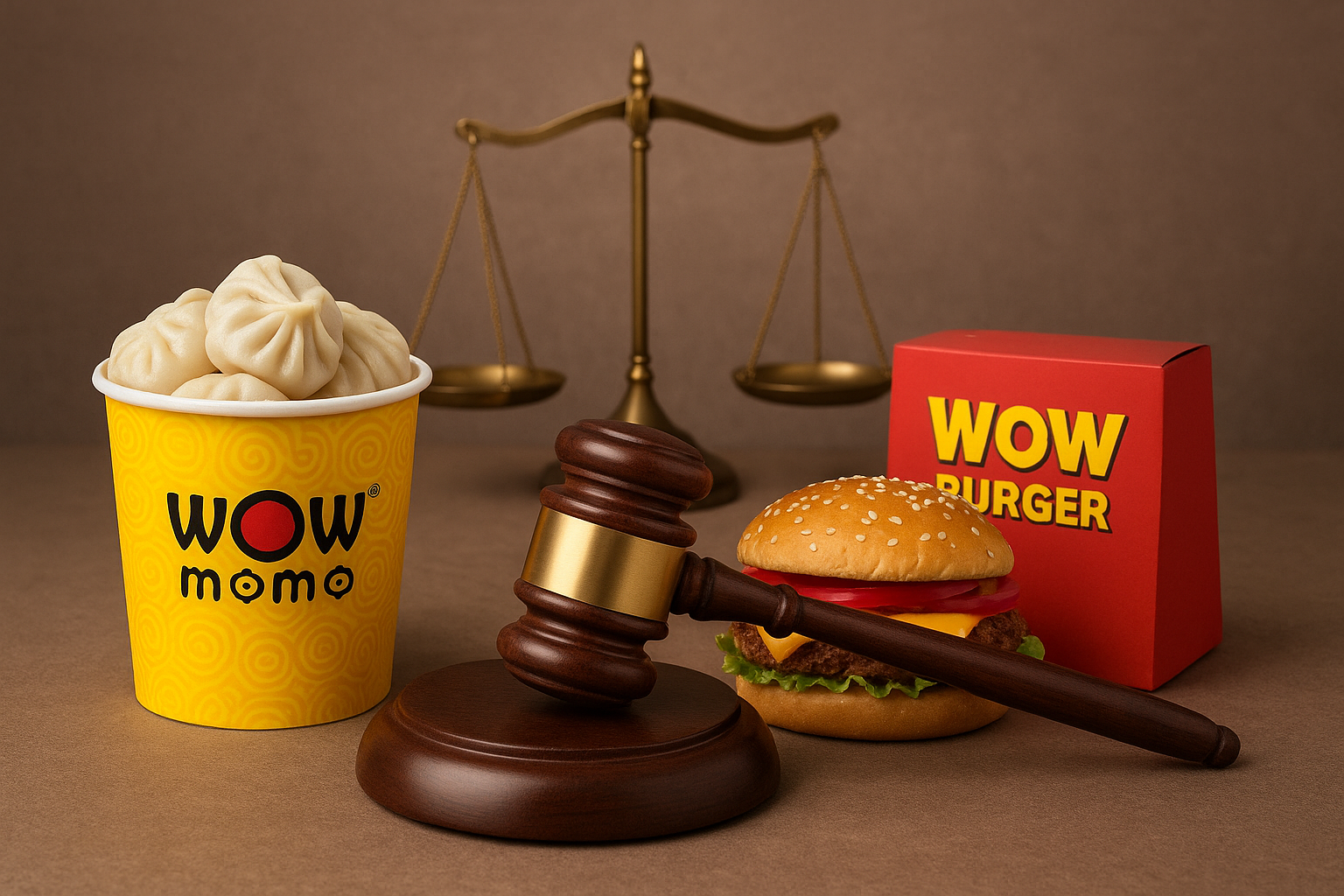The Delhi High Court has refused to grant an interim injunction to Wow Momo Foods in its trademark infringement suit against Wow Burger. The Court held that the word “WOW” is a common expression and cannot be monopolized by one company without clear evidence of distinctiveness.
The Dispute
Wow Momo, one of India’s fastest-growing quick service restaurant (QSR) chains, approached the Court seeking to restrain Wow Burger from using the mark “WOW.” The company argued that the use of “WOW BURGER” could mislead customers into believing a connection with its popular brands such as Wow! Momo and Wow! China.
The plaintiff stressed that “WOW” formed the core of its identity and had become synonymous with its food offerings across India.
The Court’s Findings
Justice Manmeet Pritam Singh Arora ruled against granting interim relief. The Court observed that:
- “WOW” is a dictionary word. It is often used in common speech and in the food industry as a laudatory term.
- Wow Momo’s trademarks are composite marks such as “WOW! MOMO” and “WOW! CHINA,” and the company does not hold exclusive rights over “WOW” alone.
- The plaintiff itself had admitted in earlier filings that “WOW” lacked inherent distinctiveness when used alone.
- Evidence suggested that “WOW BURGER” was not used as a standalone brand by Wow Momo, but only as a menu item that has not been in active use since 2018.
The Court concluded that Wow Momo failed to prove that “WOW” had acquired a secondary meaning uniquely associated with its business.
No Deceptive Similarity
The judgment emphasized that trademarks must be compared as a whole. The Court found no deceptive similarity between “WOW! MOMO” and “WOW BURGER.” It also noted the presence of several other businesses in the food and hospitality sector using “WOW” in their names.
Balance of Convenience
On the issue of irreparable harm, the Court ruled that Wow Momo had not shown sufficient evidence of injury. The balance of convenience, it said, did not justify blocking Wow Burger from operating under its chosen name.
What This Means for Brands
The ruling is a reminder that generic or laudatory terms like “WOW,” “SUPER,” or “BEST” are difficult to protect as trademarks unless they have acquired distinct recognition. Businesses relying on such terms need to establish strong brand identity and evidence of consumer association.
This decision does not end the case. The full trial will determine whether Wow Momo can prove stronger rights over the use of “WOW” in the future.

